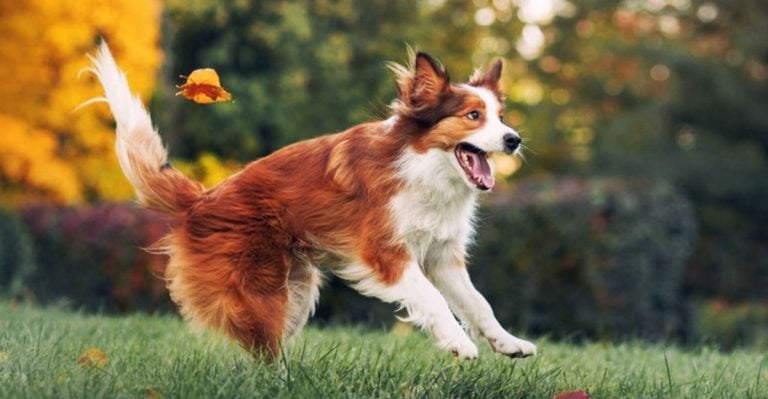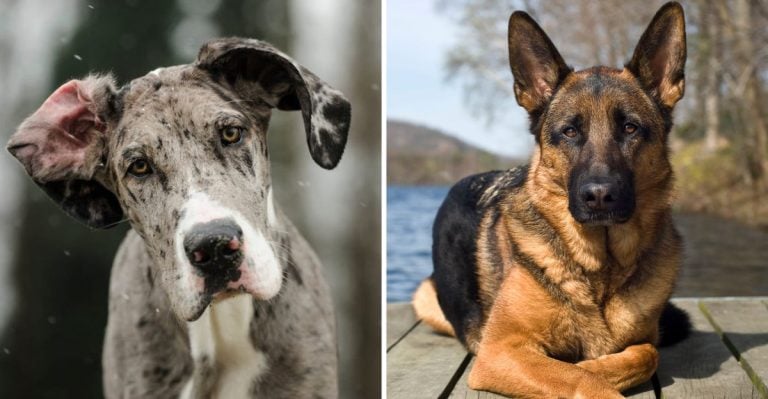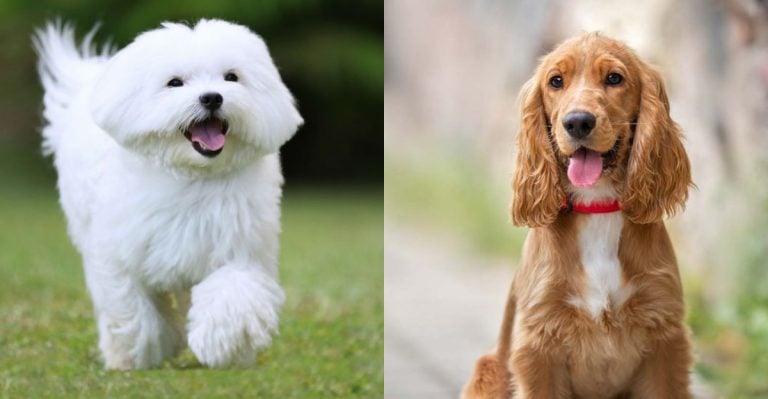The 14 Most Difficult Dog Breeds to Socialize—According to Experts
Not every dog is born a social butterfly. While some pups can’t wait to greet every human and hound they pass on a walk, others prefer a life of solitude—or at least a tight circle of trusted companions.
If you’ve ever met a dog that gives you side-eye from across the room or growls when a stranger approaches, you’ve probably met one of the harder-to-socialize breeds.
These dogs aren’t bad—they’re just built differently. Many of them were bred for very specific jobs like guarding livestock, hunting solo, or working independently in the mountains or fields.
That strong will, sharp instinct, or deep loyalty to their family can make them hesitant to trust outsiders—or even other dogs.
That’s not to say they can’t learn to be friendly or tolerant. But it takes time, patience, and consistency. For some breeds, socialization isn’t just a few puppy playdates—it’s a lifelong commitment.
This article spotlights 14 dog breeds that are known for being particularly challenging to socialize.
Whether it’s due to aloofness, suspicion, dominance, or a strong prey drive, these pups can be a handful in the wrong environment.
But in the right hands, with the right training, even the most reserved of these breeds can become confident, well-adjusted companions.
1. Chow Chow
Independent and aloof, Chow Chows are often compared to cats due to their detached demeanor. They form strong bonds with their owners but can be wary or even aggressive toward strangers and other animals.
Their unique appearance, with a lion-like mane and blue-black tongue, adds to their mystique. Historically, they were bred as guard dogs in ancient China, which contributes to their protective instincts.
Socializing a Chow Chow requires patience, consistency, and early exposure to various people and environments. Despite challenges, their loyalty to family members makes them rewarding companions.
Training should focus on positive reinforcement, as harsh methods can exacerbate their stubbornness. Owners often appreciate their independence but must be vigilant in nurturing trust and acceptance of others.
2. Basenji
Known as the “barkless dog,” the Basenji is an enigma in the canine world. Intelligent and curious, yet stubborn and emotionally distant, they march to the beat of their own drum.
This breed hails from Africa, where it was used for hunting due to its keen sense of smell and sight. Socializing a Basenji is no small feat, as their independence often leads to reluctance in training or interacting with others.
It’s essential to begin socialization early, introducing them to various people, pets, and situations.
Their sleek, cat-like grooming habits add to their unique charm. Despite challenges, those who embrace a Basenji find them to be endearing companions with a free spirit.
3. Akita
Bred for guarding and hunting, the Akita is a dog of dignified presence. Their natural suspicion of strangers can make them challenging to socialize, especially with unfamiliar dogs or environments
Originating from Japan, they were revered for their loyalty and bravery. Early, consistent socialization and training are essential for this breed, ensuring they grow to be balanced and well-mannered adults.
Akitas require a confident and experienced owner who can provide firm but gentle guidance. Their thick, plush coat and expressive eyes add to their dignified appearance.
While they may be reserved with strangers, Akitas are fiercely devoted to their families, often forming deep, lasting bonds.
4. Shar Pei
Shar Peis are known for their distinctive wrinkled appearance and strong guarding instincts. These traits, while fascinating, make them inherently suspicious of strangers.
Originating from China, they were bred for guarding and fighting, which contributes to their independent nature. Socializing a Shar Pei involves consistent exposure to different people and animals from a young age.
Their loyalty to family is unmatched, yet they can be aloof with those outside their circle. Training should prioritize positive reinforcement and gentle methods to avoid reinforcing their stubborn streak.
Despite their challenges, Shar Peis are unique and endearing companions for those willing to put in the effort.
5. Afghan Hound
With an elegant appearance but aloof nature, the Afghan Hound is not your typical people-pleaser. Their low interest in human interaction stems from their history as independent hunters in the rugged terrains of Afghanistan.
Socializing this breed can be a daunting task, requiring patience and gradual exposure to various social situations. Afghan Hounds are known for their speed and grace, often compared to a work of art in motion.
Training should be gentle, avoiding harsh corrections that might cause them to withdraw further. While not overly affectionate, those who appreciate their independent spirit find them to be elegant and faithful companions.
6. Dogo Argentino
Loyalty to family defines the Dogo Argentino, making them formidable guardians. Originally bred in Argentina for big-game hunting, they possess a strong prey drive and protective nature.
These traits can lead to aggressive reactions toward other dogs without diligent socialization. Their muscular build and confident demeanor demand respect, while early exposure to various social settings is crucial.
Consistent training with positive reinforcement helps manage their instincts, turning them into balanced companions.
Despite challenges, owners find their devotion and protective instincts reassuring. The Dogo Argentino’s striking appearance and bold personality make them unforgettable for those committed to their care.
7. Tibetan Mastiff
This large, powerful dog was bred to guard livestock, and their deeply ingrained suspicion of outsiders makes socialization tricky.
Tibetan Mastiffs exude a sense of majesty with their imposing size and mane-like fur. Historically, they protected sheep from predators in the Himalayas, shaping their independent and protective instincts.
Socializing this breed requires ongoing effort, introducing them to new people and situations gradually. They demand a confident owner who can provide firm leadership.
While challenging, their loyalty and intelligence make them rewarding companions for those who can handle their unique nature. Their noble demeanor often leaves a lasting impression.
8. Shiba Inu
Highly independent and often stubborn, Shiba Inus are not your typical social butterflies.
Their origins in Japan as hunting dogs contribute to their aloofness and strong-willed nature. Socializing a Shiba Inu requires patience and creativity, as they may show aggression or avoidance toward unfamiliar dogs and strangers.
Their fox-like appearance and spirited personality make them intriguing companions. Training should focus on building trust and using positive reinforcement techniques.
Despite their challenges, Shiba Inus are loyal and loving pets for those who appreciate their quirky and independent spirit. They thrive in environments where their individuality is respected.
9. Alaskan Malamute
Although friendly, the Alaskan Malamute can be dominant and territorial with other dogs. Their roots as sled dogs in the Arctic instill pack instincts and strength, requiring firm, early training.
Malamutes are known for their striking appearance, with thick coats and expressive eyes that convey their determination. Socializing this breed involves early and consistent exposure to various dogs and environments.
Owners must be confident and assertive, establishing leadership to manage their independent streak. Despite challenges, they are affectionate and loyal to their families, often forming strong, lasting bonds.
Their adventurous spirit makes them ideal companions for active households.
10. Caucasian Shepherd Dog
This guardian breed has a natural distrust of strangers and other animals, making rigorous training and exposure essential.
Originating from the Caucasus Mountains, they were bred to protect livestock from predators, which shapes their territorial instincts.
Socializing a Caucasian Shepherd requires patience and firm guidance, ensuring they become balanced and trustworthy companions. Their imposing size and dense coat give them a formidable presence, yet they are deeply loyal to their families.
Training should focus on obedience and controlled interactions with new experiences. Despite their challenges, these dogs are protective and devoted, making them excellent guardians for experienced owners.
11. Belgian Malinois
Highly intelligent and driven, the Belgian Malinois is a working dog that thrives on structure and discipline. Their high energy levels and protective instincts require structured socialization from an early age.
Without it, they can become reactive or overly protective. Malinois are often used in police and military roles due to their keen intelligence and trainability.
Socializing them involves exposing them to various environments and people, ensuring balanced behavior.
Owners must provide consistent training and mental stimulation to keep them engaged. Despite challenges, their loyalty and work ethic make them exceptional companions for those who can match their energy.
12. Jack Russell Terrier
Small but mighty, the Jack Russell Terrier packs a punch with its energetic and confident demeanor. Socializing this breed is crucial, as they can be reactive toward other dogs and people if not properly trained.
Originating from England for fox hunting, their tenacity is unmatched. Early exposure to various social settings helps manage their high energy levels and prevent dominance issues.
Their lively and playful nature makes them entertaining companions for active families. Training should focus on channeling their energy into positive activities.
Despite challenges, Jack Russells are affectionate and loyal pets that thrive on interaction and adventure.
13. Weimaraner
Often described as “velcro dogs,” Weimaraners are deeply attached to their owners but can be standoffish with strangers. Their origins as hunting dogs in Germany instill independence and a strong prey drive.
Socializing a Weimaraner requires early and regular exposure to various people and situations, helping them become well-adjusted adults. Their sleek appearance and elegant demeanor make them striking companions.
Training should focus on building confidence and preventing anxiety in new environments. Despite challenges, their loyalty and affectionate nature make them beloved pets for those who can provide the attention they crave.
14. Cane Corso
This Italian mastiff exudes strength and confidence, making them formidable guardians. Their protective nature can lead to wariness of strangers and dominance with other dogs.
Socializing a Cane Corso involves strong leadership and consistent training, ensuring they become balanced and confident companions.
Their muscular build and imposing presence demand respect, while early exposure to various social settings is essential. Owners must provide firm but positive guidance to manage their instincts.
Despite challenges, Cane Corsos are deeply loyal and affectionate with their families, often forming strong bonds. Their noble demeanor and protective instincts make them exceptional guardians for experienced owners.




















